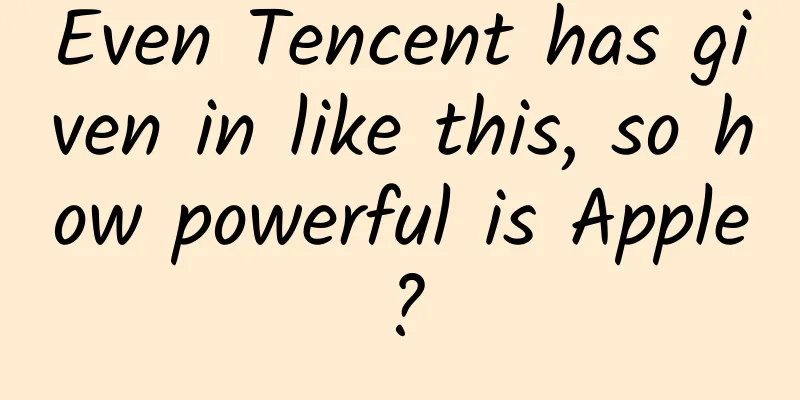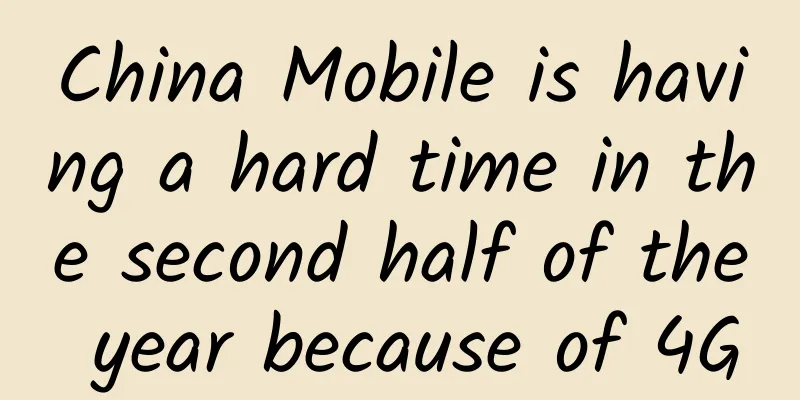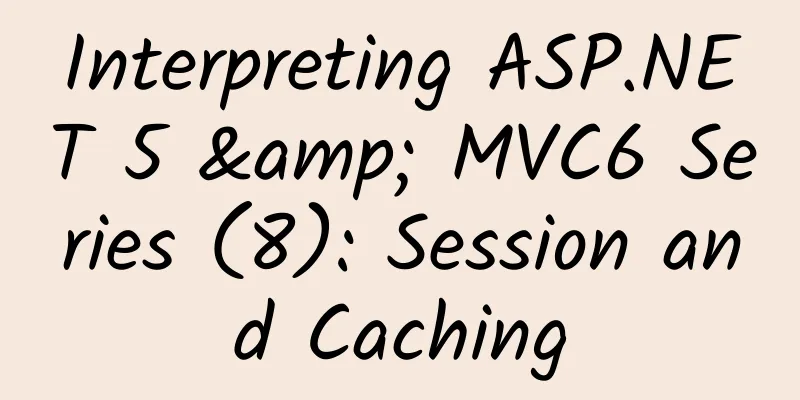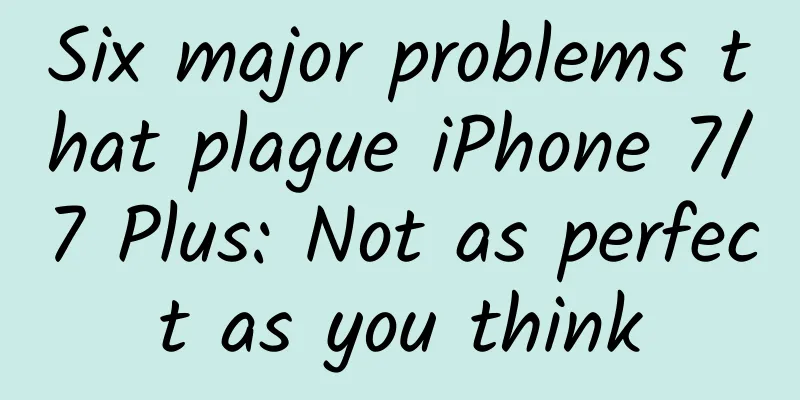Even Tencent has given in like this, so how powerful is Apple?

|
WeChat, the national app, has recently made headlines in various technology sectors because of a "small incident". On April 19, 2017, WeChat officially announced that it would cancel the reward function of WeChat public platform in iOS client from 17:00 on that day, and replace it with QR code. However, the matter did not end there. At 00:00 on April 20, WeChat officially issued another notice to cancel the QR code reward function and completely closed the reward channel. For WeChat, shutting down the reward function must have been a "difficult decision". After the official announcement, both Tencent executives and a number of self-media outlets complained bitterly and pointed the finger at Apple. What happened behind the scenes? Why did WeChat close the reward function? Why did WeChat officials suddenly shut down the praise function? You know, shutting down the praise function will definitely dampen the enthusiasm of some self-media users. Without the output of excellent self-media content, the user stickiness of the platform will be affected. We PConline also learned that WeChat officials have been preparing for the paid reading function for a long time. The closure of the praise function this time is bound to have an impact on the launch of paid reading. No matter how you look at it, WeChat officials have no reason to take action. However, the initiative in this matter does not lie in WeChat's hands. On June 13, 2016, Apple updated the terms of the App Store Review Guidelines, and clearly stated in Article 3.1.1 that "Apps must not contain buttons, external links, or other calls to action that direct users to use non-IAP (in-App Purchase) mechanisms to make payment purchases." If you feel confused, here is a simple explanation. According to Article 3.1.1, Apple stipulates that all virtual items purchased in the App must be paid through Apple's own payment channel (IAP mechanism). For example, buying points in the game, buying e-books in the reading software, or buying paid skins in the chat app all need to go through Apple's payment channel (Android system does not need this, you can jump to Alipay/WeChat and other channels to pay). The key point is that if you use the IAP mechanism specified by Apple, you must give Apple 30% of the app sales revenue. This app sales share is actually an important source of revenue for Apple's App Store. Apparently, Apple believes that rewards in WeChat are virtual items in the app and should be handled through the IAP mechanism as required. However, Tencent disagreed, because the public account reward function was jointly built by the author and the WeChat platform, not by the App Store. Why should Apple share the reward money? However, after a long period of unsuccessful communication, Tencent finally chose to compromise and closed the reward function. What is Apple’s intention in criticizing WeChat? Because of Apple's IAP mechanism, the application services of iOS clients are different from those of Android clients. For example, why are some applications on iOS clients more expensive than those on other platforms? Or why is the data of iOS and Android clients not interoperable for the same game? Having said that, although requiring WeChat's reward function to use the IAP mechanism can increase revenue, this is not the main reason why Apple is against WeChat. You know, WeChat's reward function does not contribute much revenue to Apple. In addition, the closure of the reward function has far less impact on many self-media than everyone imagines. According to Xinhuanet data, rewards only account for 3.8% of self-media revenue. Some media also linked this incident to Apple Pay, believing that Apple suppressed WeChat in order to promote Apple Pay. I still cannot agree with this point. You know, the Apple Pay in China is different from the Apple Pay in other parts of the world. We know that Apple has conducted in-depth cooperation with UnionPay to introduce Apple Pay into China. In the final analysis, Apple Pay in China is more like a new payment method of UnionPay, which is absolutely different from Alipay/WeChat. Apple Pay is just a convenient payment method, while Alipay/WeChat Pay is a financial service provider. The competition between the two is far less than everyone imagines. In the final analysis, Apple's suppression of WeChat is more to regulate the ecological environment and maximize its own interests. If Apple's rules are followed, virtual gifts on live broadcast platforms and Weibo rewards should all follow the IPA mechanism. Therefore, Apple's attack on WeChat this time may just be the beginning. If Apple strictly enforces the corresponding rules in the future, each platform will have to pay a considerable fee. Why is Apple so strong? As we all know, Tencent, which owns WeChat and QQ, has a huge number of users and has a great influence in the industry. So, what is Apple's confidence in fighting Tencent? If WeChat insists on not making adjustments, Apple will have no choice but to remove WeChat from its App Store. For WeChat, a long-term removal from its App Store would be tantamount to suicide. But some people may ask, since WeChat has so many users, why not just confront Apple? Will anyone still use an iPhone without WeChat? Of course, Tencent's choice to compromise is actually a good result. After all, the two companies did not completely fight each other, and users do not have to worry about whether to give up WeChat or iPhone. The reason why Apple is so strong is that it also has a large number of users and a very complete application ecosystem. The core of Apple's success is not the iPhone, but the App Store. The strict review mechanism of the App Store has enabled the iPhone to obtain a large number of high-quality applications, which in turn has won the favor of a large number of consumers. You know, with a market share of less than 15%, the iPhone contributes 54% of the total mobile game revenue. With such a strong ability to attract money, developers will obviously not give up easily. In fact, this is also one of the reasons why Tencent gave in this time. You know, the gaming business is Tencent's most profitable business, and the revenue from mobile games accounts for a large part of Tencent's gaming business. Looking at the game list of the App Store in China, Tencent's mobile games occupy three seats in the top ten. If the delisting storm affects mobile game apps, it is obviously not something Tencent can afford. How to look at this matter dialectically? In this case, it is difficult for us to say that Apple is wrong. Because Apple is still following the rules. Since WeChat is available on the App Store, it should abide by the rules set by Apple. There is no need for us to criticize Apple for its power. For a commercial company, it is normal to abide by the rules. After all, until today, I still cannot share Taobao information normally on WeChat. This is not to say that Apple has done nothing wrong. In fact, the wording of Article 3.1.1 is not clear and the wording is vague, resulting in the "definition" of virtual items still being deliberated. What is illegal is that the final right of interpretation is in the hands of Apple. If it thinks it is illegal, then it is illegal. This will lead to selective enforcement. There is nothing wrong with abiding by the rules, but the rules must be clear. It is absolutely unacceptable to hold on to the right of interpretation like Apple does. The debate between closed and open has not stopped until today. Although we have been adhering to the concept of freedom for so many years, countless examples have told us that closed systems often provide better user experience. Whether it is Apple or WeChat, both are trying to build their own closed platforms and their own ecosystems, and naturally they will have differences on certain issues. Perhaps the fight between Tencent and Apple is the first test of each other's bottom line. After all, for a company like Apple, the grudges caused by the launch of WeChat mini-programs have not yet been settled. However, how to resolve conflicts and achieve a win-win situation is what is really worth thinking about. As a winner of Toutiao's Qingyun Plan and Baijiahao's Bai+ Plan, the 2019 Baidu Digital Author of the Year, the Baijiahao's Most Popular Author in the Technology Field, the 2019 Sogou Technology and Culture Author, and the 2021 Baijiahao Quarterly Influential Creator, he has won many awards, including the 2013 Sohu Best Industry Media Person, the 2015 China New Media Entrepreneurship Competition Beijing Third Place, the 2015 Guangmang Experience Award, the 2015 China New Media Entrepreneurship Competition Finals Third Place, and the 2018 Baidu Dynamic Annual Powerful Celebrity. |
<<: The new generation Audi Q3 will launch a plug-in hybrid model instead of the 1.4T
Recommend
Will Jiangsu officially implement delayed retirement starting March 1, 2022? To what specific age should retirement be delayed? Attached is the latest news on age!
Delaying retirement has been one of the topics th...
Is it a problem to drain more than 200,000 cubic meters of lake water to catch two alligator gar?
On July 13, a "strange fish" appeared i...
Follow these 6 UI background design trends to make your interface more colorful
Whether designing a web page or a poster, backgro...
Schools of programming
[[142408]] There are always people who like to ar...
Everyone says Yahoo is in decline, but why are the giants scrambling to acquire it?
There have been many reports recently that Yahoo ...
Without it, we might not have developed the atomic bomb.
Friends who have read "The Three-Body Proble...
One article, 1.1 million views + 30,000 favorites, how to promote an App virally?
When we mention viruses, we will think of influen...
Some are placed in the front, some are placed in the back, so where should the propeller of an airplane be placed?
Since the advent of airplanes, propeller planes h...
When BOSE Revolve meets SONY LF-S80D, which one is your favorite?
When it comes to BOSE and SONY, all friends who h...
The core of Double Eleven marketing event promotion planning!
Since 2014, November 11th of every year has becom...
How did "Nezha" gain 15 billion traffic on Douyin without spending any money?
"Nezha" has grossed over 3.5 billion yu...
"Low-fat diet" was a half-century scam
It's the season for losing weight again. When...
What should I pay attention to when renting a server?
What should I pay attention to when renting a ser...
How to control costs when doing Baidu bidding? How to reduce the cost of Baidu promotion?
We who do promotions all know that bidding is cha...









